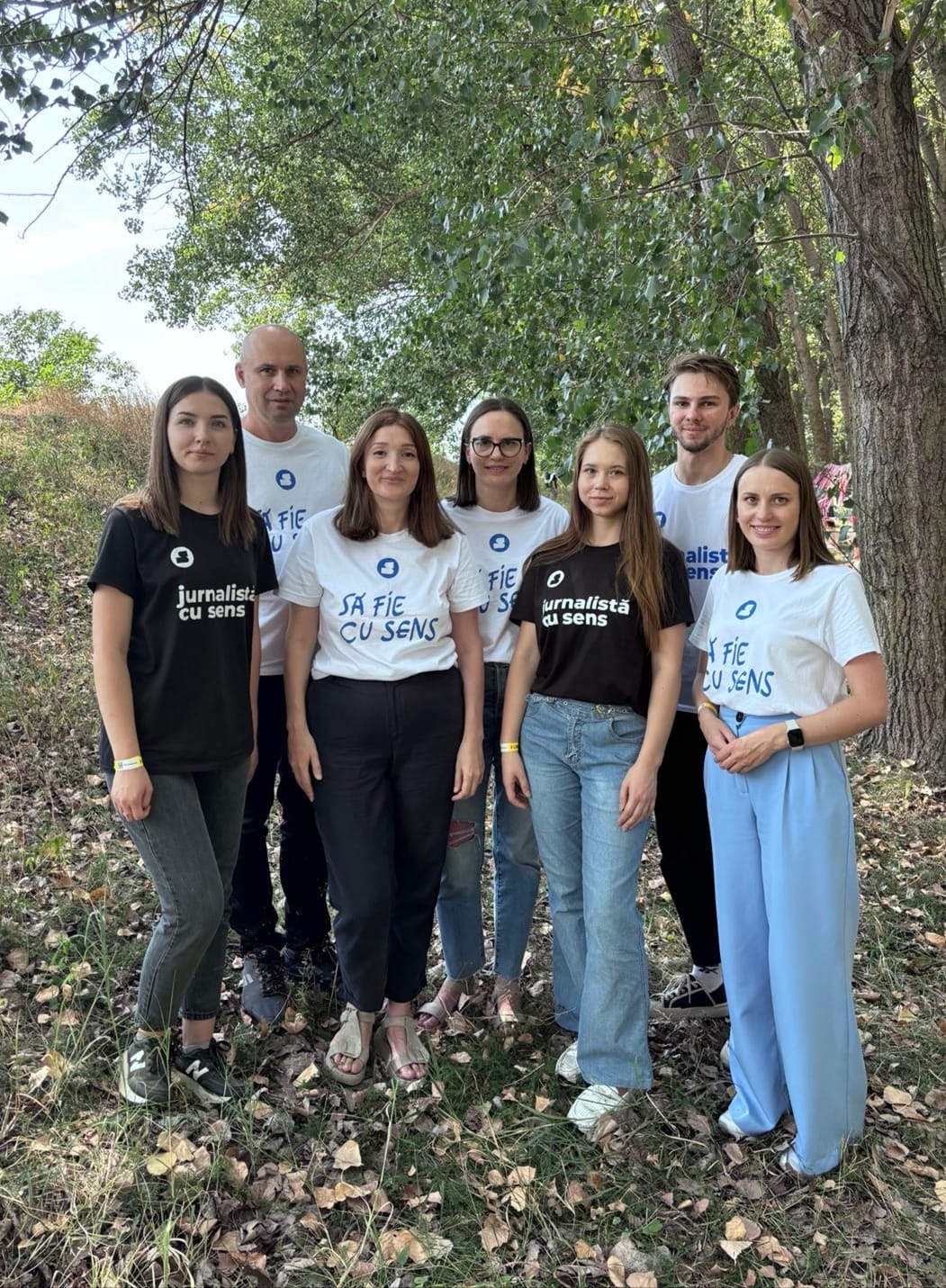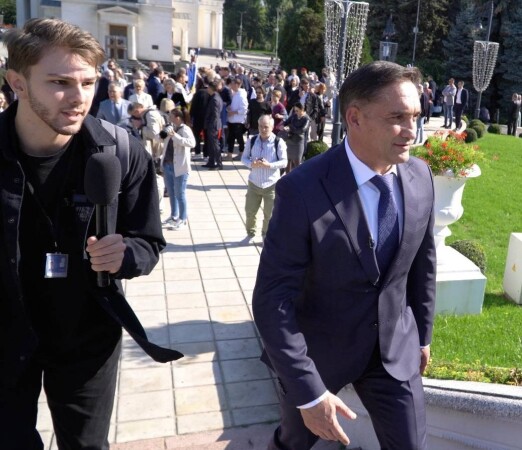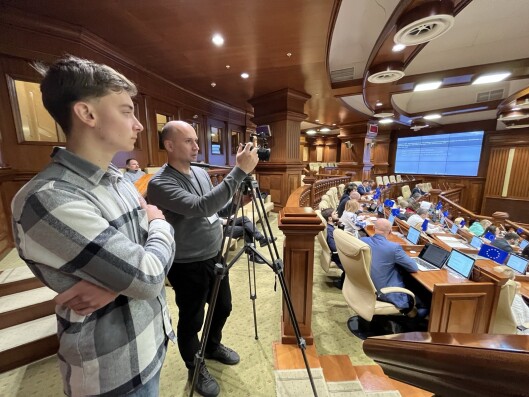
“We established Cu Sens as the first Moldovan outlet focused on investigations in video format,” says Eva Karlíková, a project coordinator at Cu Sens. “Our aim is to make information more accessible.”
Established in 2019, Cu Sens is an independent media organisation that investigates corruption and misinformation in Moldova and it produces video stories to help viewers make sense of democratic processes in their country. Many stories have revealed important cases of corruption or external influence in Moldova.
“We believe that investigative journalism can foster critical thinking and democratic participation. Our investigations have exposed bribery and the influence of Russian money channelled through Moldovan oligarchs around 2024 Presidential elections. They have been critical for democracy, showing how external forces were trying to buy the voters,” says Eva.

Launched by a group of experienced reporters, Cu Sens emerged as the first national platform that focused on investigations in a video format. The journalists wanted to make this reporting more accessible and relevant, especially to young people, who mostly get their news through social media. “Cu Sens”, means “Meaningful” in Romanian.
“In the beginning, the founders ran a crowdfunding campaign which allowed the platform to launch with its initial investigations. The stories followed. The investigations made a profound impact on the local and national policymaking, prompting further criminal investigations into government misspending after we reported on those issues,” she says.
Thanks to EED’s support, Cu Sens launched its website, and reported on the Moldovan Parliamentary elections in 2021. The team covered other important developments in Moldova – such as corruption cases, illegal funding of political parties, and oligarchs’ properties. Among some of the most influential investigations were reports on the luxurious life of Moldovan oligarch Ilan Shor, a pro-Russian politician sentenced in absentia for money laundering. Shor was a key figure during Moldova’s 2024 Presidential elections, where he funded various pro-Russian candidates. Cu Sens showcased how Shor used money sent directly from Russia to influence election results and downplay support for the pro-EU candidates.
“He sent lots of money from Russia into Moldova to support pro-Russian politicians and pay off the electorate. The funds were going through Kremlin-owned banks, but also, directly through people flying in from Russia into Moldova. With our reporting, we showed this money flow and explained how Russia tried to interfere with Moldovan elections through corrupt finances and oligarchs like Shor,” says Liuba Șevciuc, producer and a co-founder of Cu Sens.
During the three months of the election period, Cu Sens gathered more than four million views for its investigative videos; Moldova’s population is only 2.5 million.
The team has partnered with influencers to extend their reach and their stories are often picked up by mainstream media, amplifying their scope across national TV and radio.
“We are very proud of our investigations during the elections,” says Olga Ceaglei, co-founder and editor at Cu Sens. “We used undercover techniques and collaborations with international journalists to reveal Russia's inventive methods of undermining our democracy. We followed the money trail, exposing links between oligarchs and Russian propaganda.”

In addition to investigations, the platform produces different forms of content to help viewers navigate the pitfalls of Moldovan policymaking. The team delivers reports from Parliament, explaining the issues that the politicians are discussing, and debunks disinformation by analysing political speeches, pointing out manipulative rhetoric, and educating the public on how to identify propaganda.
Additionally, journalists produce explainers where they break down complex issues like money laundering. Viewers can also use an accessible database of members of the Parliament that the Cu Sens team has compiled that details the financial and criminal backgrounds of policymakers.
“We’re now preparing to launch a new media product called “Hard Talks’, a series of long-form investigative interviews with Moldovan politicians and opinion leaders. The episodes aim to hold public figures accountable, challenging their narratives in real-time and scrutinising their integrity,” says Eva.
The team engages with young journalists, who can obtain internships at the platform and then become full-time reporters, teaching them how to do investigations.
“Investigative journalism is not easy. Now, we need to raise a new generation of investigative reporters. There are few investigative newsrooms in Moldova, and a dozen or so journalists do deep investigative stories,” says Olga.
This comes with challenges. Investigative reporters have to work under pressure. They struggle to get access to different sources of data when they look into potential corruption or misspending by politicians. There are also legal difficulties.
“We are often threatened with court actions,” Liuba says. “This is very stressful, especially for young reporters with little experience. Legal cases against us aim to shut us down so we cannot continue with our investigations.”
Cu Sens has also been the target of cyberattacks and surveillance in the past. They have since installed stricter physical and digital security measures but admit the sense of being watched remains.
“Investigative journalism requires a lot of time and effort, but it matters for society. It takes many skilled reporters. We are proud of our work educating the public and shedding light on important events in Moldova. Our investigations have had a great impact across our country,” says Eva.
This article reflects the views of the grantees featured and does not necessarily represent the official opinion of the EED.